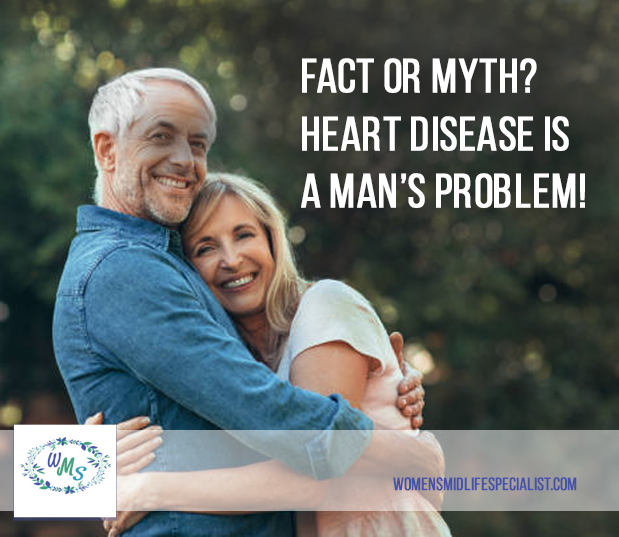FACT or MYTH? Heart Disease is a Man’s Problem!

Most women are still under the assumption that Heart Disease is a Man's Problem. With all of the information available, research and studies why do we still feel this way and where did this information historically begin??
We have to go back to the 1950's. In 1950 a group of physicians formed the International Society of Cardiology (ISC) to start research on Heart Disease. Their studies on young soldiers killed the Korean War, which began the same year as the ISC, shocked the medical community by revealing heart disease started far earlier in a person’s lifetime than they had previously suspected.
While the findings of heart disease in these young soldiers were alarming, early research was also starting to reveal preventative measures. While the work and findings were groundbreaking the studies DID NOT INCLUDE WOMEN!!!
WHY? Because women were often excluded from high-profile heart research, in the public’s eye the disease because associated with men. And even when early heart disease studies included significant numbers of women, the data often highlighted risk factors TRADITIONALLY LINKED TO MEN. The most famous finding of the Framingham Study, was research that followed a group of men and women to determine the causes of cardiovascular disease, linked to cigarette smoking to hear problems. When this data was announced to the public in the 60’s, men were almost 2x’s as likely to smoke than women, making the notion that stereotypically male behavior caused heart disease stick.
This early research directly contributed to the myth that heart disease is more common in men. While women’s rate of heart problems is generally compared to Men – Women are less likely to RECOGNIZE THE DANGER. Currently the leading cause of death among women globally, in a recent survey only 13% said heart disease was THEIR greatest personal health risk.
THE LACK OF AWARENESS risks a compounding DANGER! WHY? Because identifying the risk factors associated with heart disease and providing effective treatments have proven to be the most effective way of attacking the disease.
While there has been a reduction in heart disease rates in men, older women have seen a LESS SIGNIFICANT REDUCTION in heart disease. This may be due to the fact the women DO NOT consider themselves at high risk.
What increases heart disease in women?
- Diabetes. Women with diabetes are at greater risk of heart disease than are men with diabetes.
- Mental stress and depression. Women's hearts are affected by stress and depression more than men's. Depression makes it difficult to maintain a healthy lifestyle and follow recommended treatment, so talk to your doctor if you're having symptoms of depression.
- Smoking. In women, smoking is a greater risk factor for heart disease in women than it is in men.
- Inactivity. A lack of physical activity is a major risk factor for heart disease, and some research has found women to be more inactive than men.
- Menopause. Low levels of estrogen after menopause pose a significant risk factor for developing cardiovascular disease in the smaller blood vessels (coronary microvascular disease).
- Broken heart syndrome. This condition — often brought on by stressful situations that can cause severe, but usually temporary, heart muscle failure — occurs more commonly in women after menopause. This condition may also be called takotsubo cardiomyopathy, apical ballooning syndrome or stress cardiomyopathy.
- Certain chemotherapy drugs and radiation therapy for cancer. Some chemotherapy drugs and radiation therapies, such as those used to treat breast cancer, may increase the risk of cardiovascular disease.
- Pregnancy complications. High blood pressure or diabetes during pregnancy can increase women's long-term risk of high blood pressure and diabetes and increase the risk of development of heart disease in the mothers.
What are the signs of a heart attack in women?
- Neck, jaw, shoulder, upper back or abdominal discomfort.
- Shortness of breath.
- Pain in one or both arms.
- Nausea or vomiting.
- Lightheadedness or dizziness.
- Unusual fatigue.
We encourage you to take full advantage of the latest discoveries, we need to overcome the lingering effects of the myth that heart disease is a man’s issue and be more aware of the different symptoms of heart problems that women can suffer!


Leave a comment